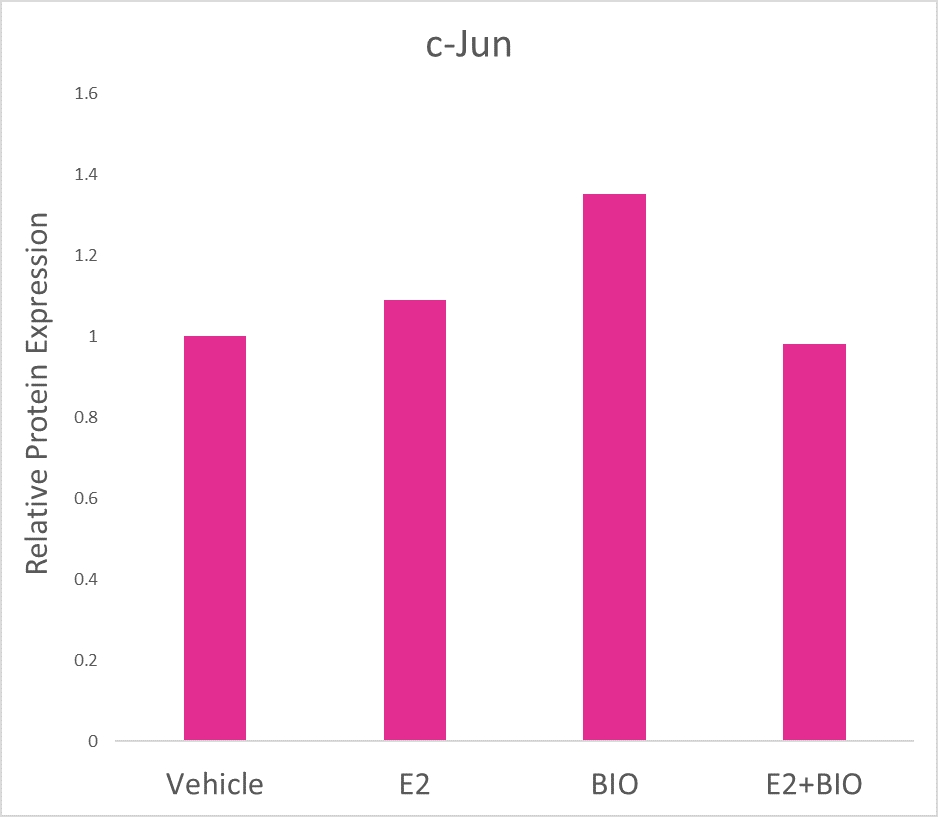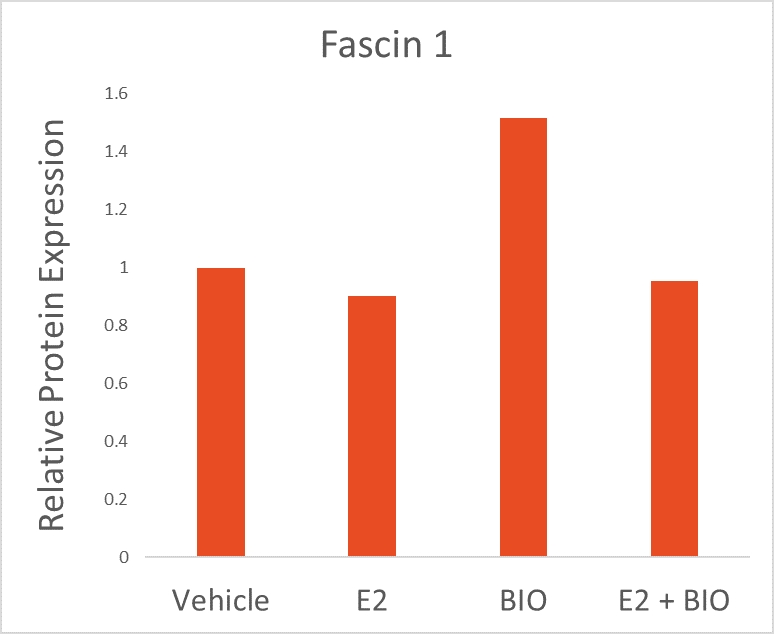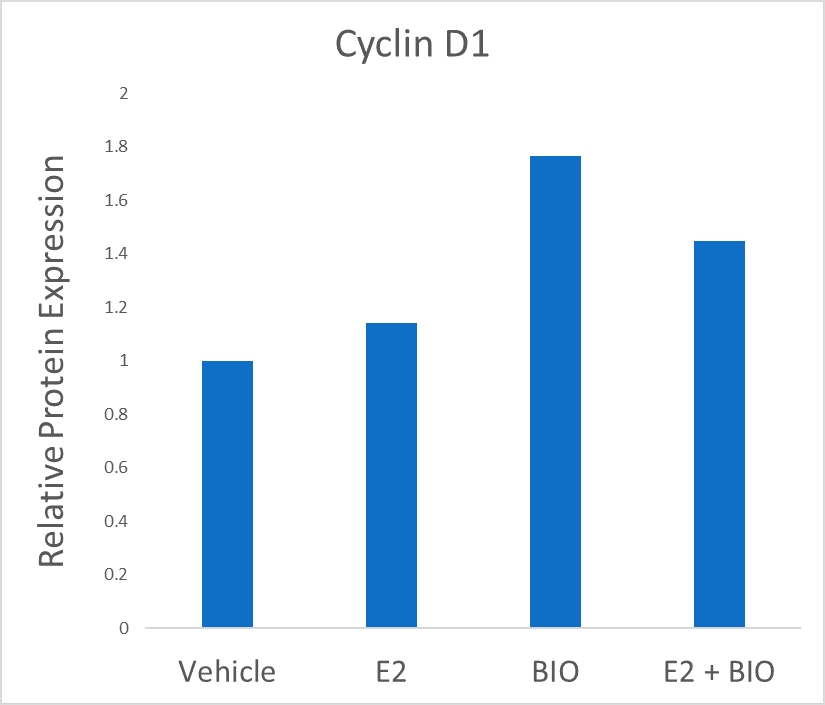Introduction: Men are more likely to get colorectal carcinoma than women. There is evidence that oestrogen can provide a protective effect against colorectal carcinoma in females, although the mechanisms are not fully elucidated 1. Over activation of the Wnt/beta-catenin signalling pathway occurs frequently in colorectal cancer and can lead to proliferation of colorectal carcinoma cells 2. We hypothesise that oestrogen may provide protection by preventing over activation of the Wnt/beta-catenin signalling pathway. Aim: The aim of this research was to determine the effect of oestrogen on the Wnt/beta-catenin signalling pathway in colorectal carcinoma cells. Methods: HT29 colorectal cancer cells were cultured and treated with 100nM oestradiol (E2) or vehicle (ethanol). In order to over-activate the Wnt/beta-catenin pathway, cells were also treated with 0.25µM GSK3-β inhibitor (“BIO”) or vehicle (DMSO). Western blotting was performed to assess expression of the Wnt/beta-catenin target proteins, c-Jun, cyclin D1 and fascin1. Protein expression was normalised to β-actin and quantified by densitometry using Image J 1.52 software. Results: Oestrogen treatment alone did not impact the protein levels of c-Jun, cyclin D1 or fascin1 which are the Wnt/beta-catenin targets in HT29 cells (n=2). Over-activation of the Wnt/beta-catenin pathway, by inhibition of GSK3-β using BIO, resulted in an increase of the protein levels of the Wnt targets as expected. Interestingly, oestrogen co-treatment with BIO prevented the increase in c-Jun (n=2), cyclin D1 (n=1) and fascin1 (n=1) induced by BIO alone. Conclusion: Oestrogen does not inhibit the Wnt signalling pathway under basal conditions but it may exert a protective effect against colorectal carcinoma by preventing Wnt/beta-catenin over-activation.
Future Physiology 2020 (Virutal) (2020) Proc Physiol Soc 46, PC0026
Poster Communications: Oestrogen Regulation of the Wnt/Beta-Catenin Pathway as a Protective Mechanism Against Colorectal Cancer
Santralega Lingam1, 2
1 Perdana University , Selangor , Malaysia 2 Department of Molecular Medicine, Royal College of Surgeons in Ireland, Dublin , Ireland
View other abstracts by:
Where applicable, experiments conform with Society ethical requirements.




